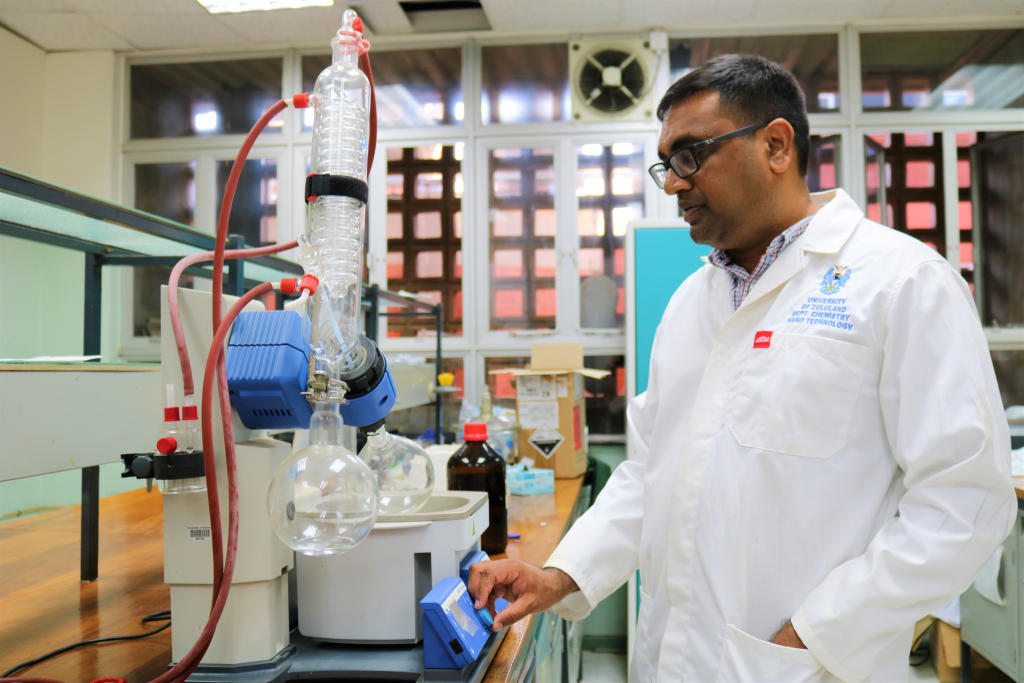Professor Neerish Revaprasadu, an acclaimed productive nanomaterials researcher and senior professor in the Department of Chemistry at the University of Zululand (UNIZULU), is now among the world’s top 2% researchers, according to Stanford University’s newly released World’s Top 2% Scientists list.
Regarded the pinnacle for scientists globally, the Stanford University list considers the most prolific and cited scientists in 22 scientific fields and 176 subfields, ranking them according to their individual contribution in their fields. The criteria is largely based on bibliometric information found in the Scopus database, which contains data of over 180 000 researchers out of over eight million considered to be active around the world. Information on citations, h-index, co-authorship adjusted hm-index, citations to papers in different authorship positions and a composite indicator (c-score) is provided on the Scopus database.
Upon receiving this news, Prof Revaprasadu said he felt triumphant and proud of himself, his team and university. “The appearance on the list validates our quest for quality and impact in our work. It shows international recognition. But what is most satisfying for me is that we have achieved this at a rural university with limited resources. It shows what can be achieved through determination and institutional support. My students can be counted as being of world standard,” he proudly stated.
Prof Revaprasadu’s involvement in the nanotechnology space spans two decades. He began his research on nanomaterials in 2000 at UNIZULU, working on a wide range of materials – from sulfides to selenides to tellurides, involving metals such as nickel, cobalt, iron and copper. He has since formed a research group comprised of young and vibrant chemists with whom he works on carbon-based composites, 2-D nanomaterials, ternary and doped materials. The group perfected a formula Prof Revaprasadu learned from his late mentor, Prof Paul O’Brien, and applied it to various materials, which has given it the edge in developing new materials.
Prof Revaprasadu believes that the high quality of materials his group has synthesised, coupled with the fact that they were among the trailblazers in the nanotechnology field, contributed to his recognition. “The advent of green energy, in particular water splitting applications using functional materials, helped our work gain visibility within the materials community. The high quality of materials synthesised has allowed us to publish the work in high impact journals. This has then increased our citations exponentially in the past few years,” he said.
While he considers his latest recognition a major achievement, Prof Revaprasadu is certain that the citations will only multiply from here, as he intends to continue producing high-quality work with his research group. He is determined to “prove that high quality, impactful research can be done at HDIs”.
Apart from citations, the professor is also seeking to see the work produced by his group culminate in innovations that will benefit greater society.
He concluded by saying: “I am ever grateful for the support of the university that allows me to carry out work that I enjoy. We work in a very research conducive environment. The management should also take credit for my success.”
– Naledi Hlefane

